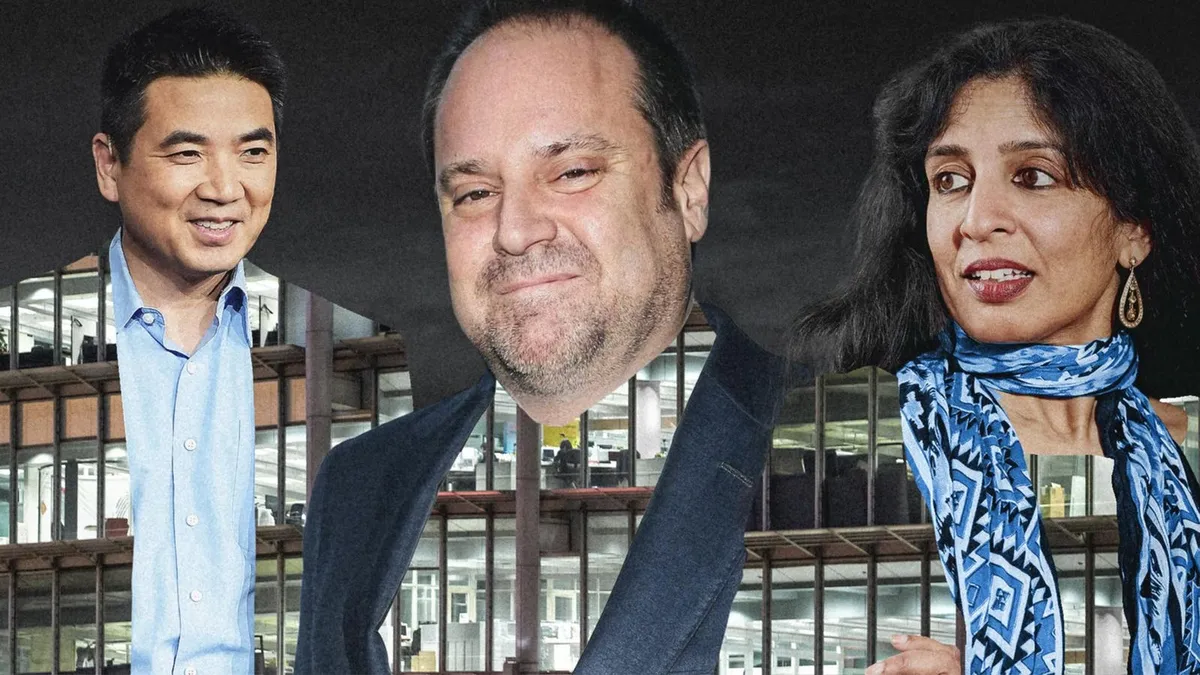
A select group of immigrant billionaires began their journey in the United States with the assistance of the H-1B visa, a program designed to attract highly skilled talent. Today, some of the nation's largest tech firms, backed by these billionaires, are among the most frequent users of H-1B visas.
Canadian engineer Jeff Skoll, known for being eBay’s first full-time hire and president, initially felt secure in his U.S. future during the late 1990s. After growing the company to 3,000 employees and going public in 1998, Skoll faced a surprise when his H-1B visa renewal was rejected in 1999. “The H-1B was essential for me,” Skoll tells Forbes. Without it, he might have had to leave the country, potentially jeopardizing eBay's success during its formative years.
Determined to remain at eBay, Skoll sought help from then-Senator Dianne Feinstein and Vice President Al Gore, facilitated by eBay executive Steve Westly. This support enabled Skoll to secure an O-1 visa, intended for individuals with "extraordinary ability," before eventually obtaining his green card and U.S. citizenship in 2007. Skoll emphasizes, “It's not about avoiding hiring Americans. There just aren’t enough Americans to fill the needs of these companies.”
Many leading tech companies, such as Amazon, Microsoft, Meta, and Google, are major employers of H-1B visa holders, according to U.S. Citizenship and Immigration Services. Biotech billionaire Patrick Soon-Shiong describes these visas as “living proof of the American dream in action,” highlighting their importance in fostering innovation.
Elon Musk, a prominent immigrant entrepreneur, is also a strong advocate of the H-1B program. His company, Tesla, has recently become one of the top U.S. employers utilizing these visas. Musk credits the H-1B visa for enabling him and other key figures to build companies like SpaceX and Tesla, which have significantly contributed to America's economic strength.
Introduced in 1990, the H-1B visa was crafted to encourage the immigration of talented professionals such as scientists, engineers, and educators. This temporary visa, valid for up to three years and renewable, quickly became a crucial hiring tool in Silicon Valley. Although the number of visas issued annually varied in the past, since 2006, the cap has been set at 85,000, with 20,000 reserved for those with advanced degrees from U.S. universities.
While approximately 12% of American billionaires are immigrants, only a few have personally benefited from an H-1B visa early in their careers. Here are some notable examples:
Jeff SkollBirth country: Canada
Net worth: $5.2 billion
Skoll's journey began at the University of Toronto before he moved to Stanford for an MBA. At eBay, he transitioned from a J-1 student visa to an H-1B visa, underscoring the program's importance in filling tech, healthcare, and science roles.
Birth country: China
Net worth: $5 billion
The founder of Zoom, Yuan faced multiple visa rejections before obtaining an H-1B in 1997 to work at WebEx. His perseverance paid off, leading to the creation of Zoom, which soared in popularity during the Covid-19 pandemic.
Birth country: India
Net worth: $4.9 billion
Jain's career in the U.S. began with an MBA at the University of Miami, followed by an H-1B visa in 1994. He co-founded GQG Partners in 2016, a firm now managing $153 billion in assets.
Birth country: United Kingdom
Net worth: $4.7 billion
Ullal, raised in India and educated in the U.S., worked at several Silicon Valley firms before joining Cisco. She later became CEO of Arista Networks.
Birth country: France
Net worth: $1.1 billion
Cruanes began his U.S. career at Oracle before co-founding Snowflake, which had the largest-ever software IPO in 2020. He's a named inventor on over 200 patents.
Some billionaires began their U.S. journey with the predecessor to the H-1B visa:
Patrick Soon-ShiongBirth country: South Africa
Net worth: $6 billion
Soon-Shiong, a pioneer in cancer treatment, highlights the H-1 visa's role in fostering innovation and economic growth. He emphasizes the need to distinguish between issues of illegal immigration and programs like the H-1B visa.
Birth country: India
Net worth: $2 billion
Sardana moved to the U.S. with limited resources, earning a master's degree and eventually obtaining an H-1 visa to work at Howmet Aerospace. He founded Innova Solutions in 1998, highlighting the visa's role in entrepreneurial success.
The H-1B visa remains a vital tool for attracting skilled talent to the U.S., supporting economic growth, and fulfilling the American dream for many immigrants.